
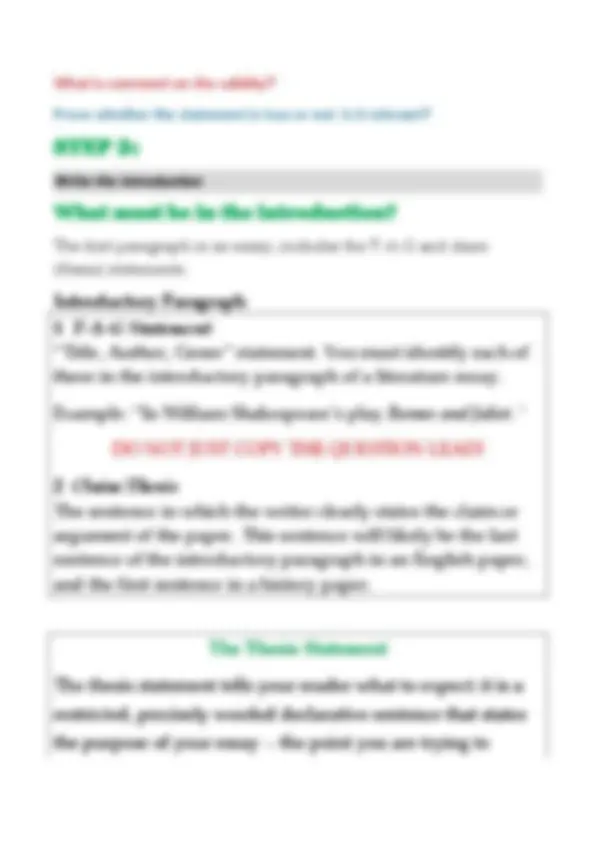
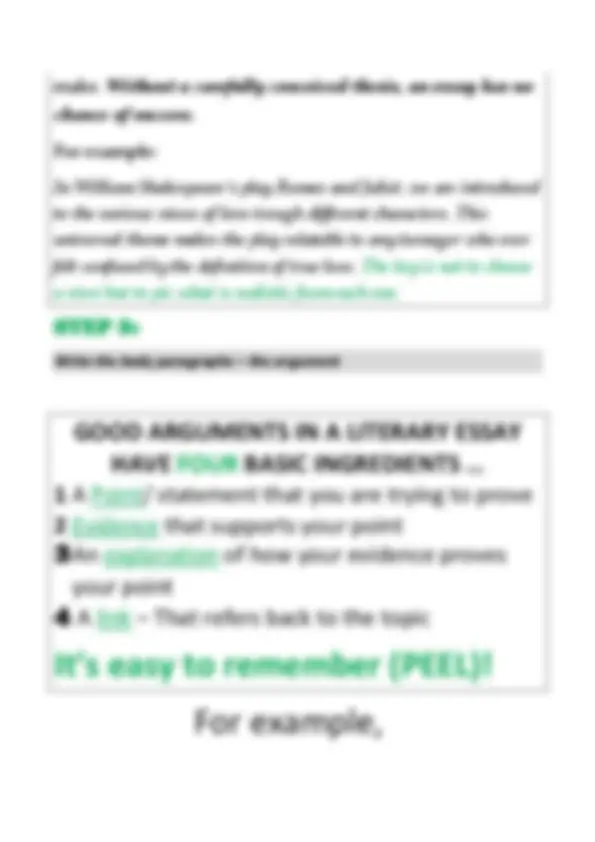
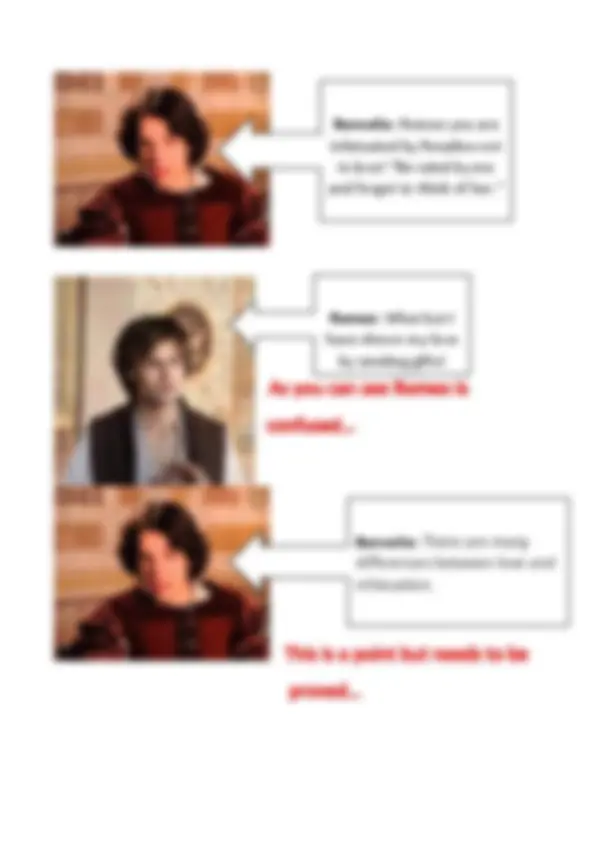
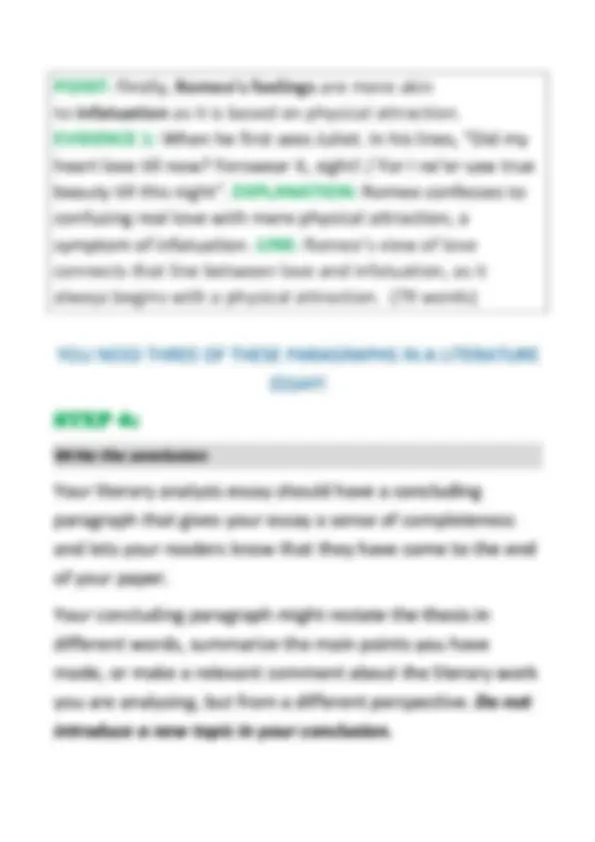
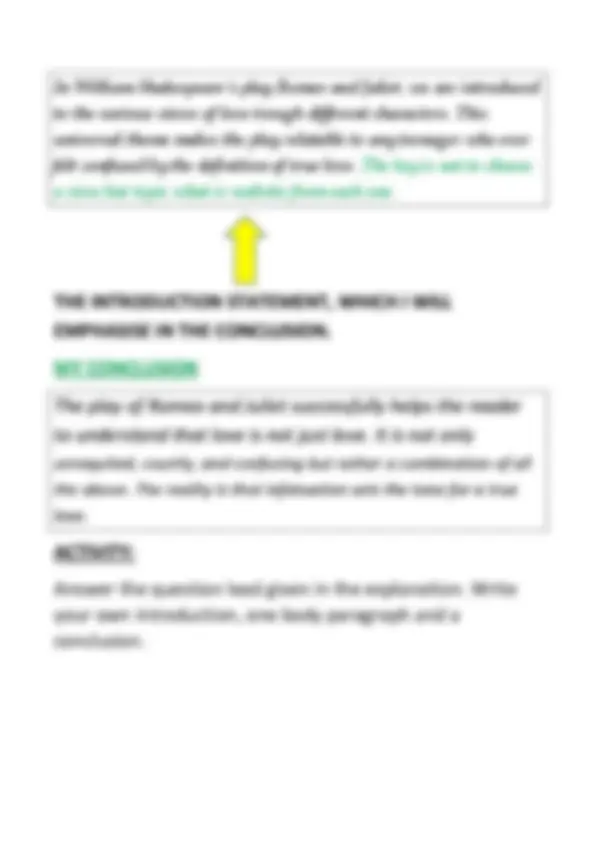


Study with the several resources on Docsity

Earn points by helping other students or get them with a premium plan


Prepare for your exams
Study with the several resources on Docsity

Earn points to download
Earn points by helping other students or get them with a premium plan
Community
Ask the community for help and clear up your study doubts
Discover the best universities in your country according to Docsity users
Free resources
Download our free guides on studying techniques, anxiety management strategies, and thesis advice from Docsity tutors
A literature essay is writing about a novel/drama and making judgements about the themes, structure, characters or symbols within it. 1. The most important rule ...
Typology: Schemes and Mind Maps
1 / 9

This page cannot be seen from the preview
Don't miss anything!






What is a literature essay? A literature essay is writing about a novel/drama and making judgements about the themes, structure, characters or symbols within it.
Analyse the question that is given to you. Question example: This is the question lead/statement In William Shakespeare’s play Romeo and Juliet there are many types of love which can be seen throughout the play, of which include; unrequited love, courtly love, true love and love at first sight. “There is a thin line between love and infatuation” Comment on the validity of this statement by relating it to the views and actions of various characters. Your essay must be 3 00 - 35 0 words. Always look for the question words to make sure you answer the question!
STEP 3 : Write the body paragraphs – the argument
Benvolio: Romeo you are infatuated by Rosaline not in love! “Be ruled by me and forget to think of her.” Romeo: What but I have shown my love by sending gifts! Benvolio: There are many differences between love and infatuation.
You see even the dictionary agrees with Benvolio’s statement that Romeo is merely infatuated by Rosaline. This adds credibility to his point! Back to the essay lead…
To write the first PEEL paragraph we will have to improve Benvolio’s evidence by referring to the text. NB! Keep the word count in mind when writing your paragraph. A good paragraph average is 80-90 words. An example of a body paragraph follows on the next page!
POINT: Firstly, Romeo's feelings are more akin to infatuation as it is based on physical attraction. EVIDENCE 1 : When he first sees Juliet. In his lines, "Did my heart love till now? Forswear it, sight! / For I ne'er saw true beauty till this night”. EXPLANATION: Romeo confesses to confusing real love with mere physical attraction, a symptom of infatuation. LINK: Romeo’s view of love connects that line between love and infatuation, as it always begins with a physical attraction. (79 words) YOU NEED THREE OF THESE PARAGRAPHS IN A LITERATURE ESSAY! STEP 4 :
Your literary analysis essay should have a concluding paragraph that gives your essay a sense of completeness and lets your readers know that they have come to the end of your paper. Your concluding paragraph might restate the thesis in different words, summarize the main points you have made, or make a relevant comment about the literary work you are analysing, but from a different perspective. Do not introduce a new topic in your conclusion.